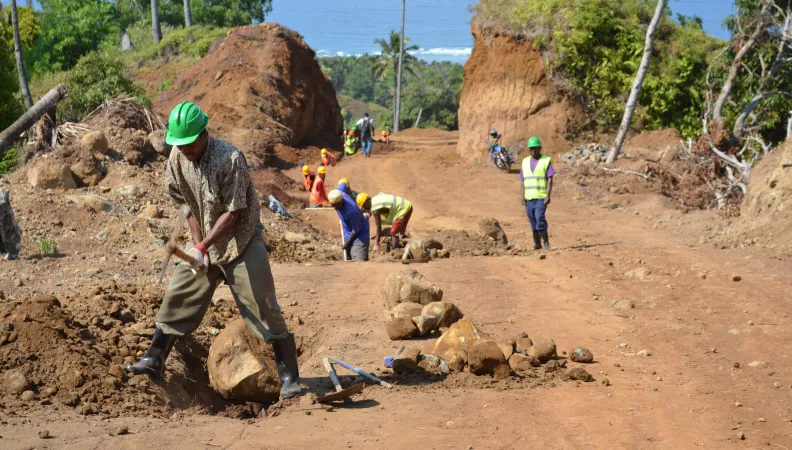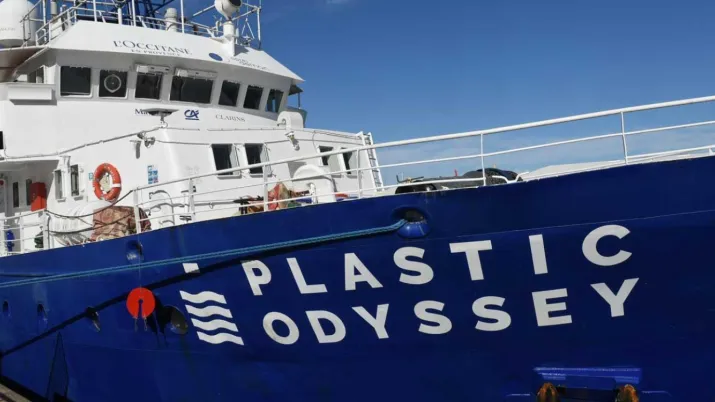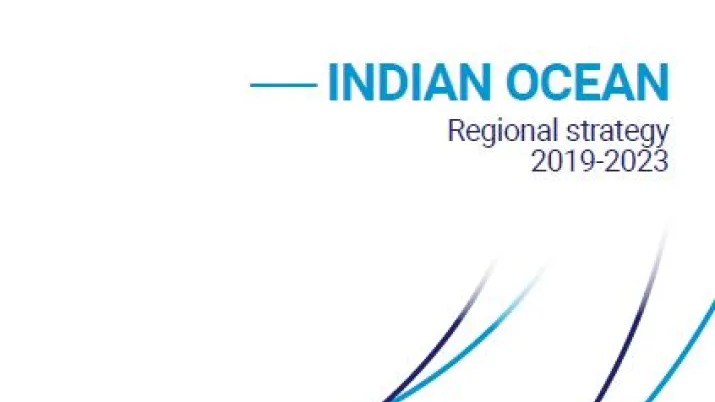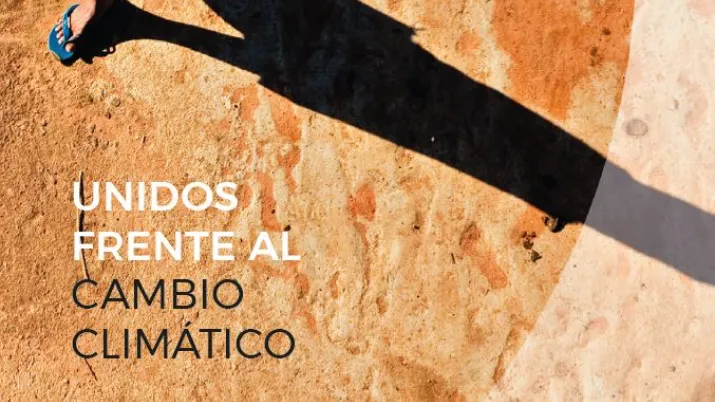Share the page
The Comoros

The Union of the Comoros is a small island nation in the Indian Ocean and one of the 19 priority destinations for French aid. AFD's work in the Comoros covers five main areas: health, water, climate and the environment, support for the financial and private sectors and, since 2018, education.
Context
The Union of the Comoros, located off the coast of Mozambique and Madagascar, is an archipelago made up of three islands (Grande Comore, Moheli and Anjouan).
With 45% of its population living below the poverty line and ranked 160 out of 187 on the Human Development Index, the Comoros fall into the UN category of least developed countries (LDC). The 2% annual growth rate over the last decade means the economic situation remains fragile. This is further compounded by the fact that economic growth is slower than the population growth rate (2.4%).
The economy of the islands is not very diversified, and is dominated by agriculture. They also suffer from energy shortages and a lack of water. Another key factor in understanding the Comoros is the sizeable diaspora living in France and in other parts of the Indian Ocean, whose remittances represent 26% of national GDP.
France has very close relations with the Comoros and the nation is one of the 19 priority destinations for French aid.
As a partner of the Comoros for more than 60 years, AFD has concentrated its efforts on certain key sectors (access to resources, to financial services, to healthcare, etc.). We provide help through subsidies and technical support projects. This work is part of the strategy to combat poverty and is in line with the partnerships signed between France and the Comoros.
Between 2008 and 2017, AFD committed more than €74 million.
AFD's Comoros office is directly attached to the Indian Ocean regional office in Saint-Denis.
Our approach
"AFD and the Comoros: putting an end to the economic vulnerability"
One of AFD's main priorities is to contribute to improving the healthcare system in the Comoros. Its work is centered primarily around maternal and child health, as well as providing access to care for the most vulnerable.
Five projects have helped to improve:
- the quality of care offered by the main hospitals in the country;
- access to obstetricians;
- maternal health on the island of Anjouan (maternity and healthcare centers);
- the quality of services and professionalism of Caritas Comoros and its healthcare center on Moroni;
- community healthcare.
Improving water access and quality
Only a very small part of the local population has access to drinking water. Creating water networks, boosting infrastructure performance and ensuring the sustainability of public services are all major issues for the Comorian government. AFD is committed to helping rural and urban stakeholders in the sector to:
- modernize and build water infrastructure on the three islands;
- support efforts to improve the professionalism of local operators and sector governance for better public services;
- preserve and increase the availability of resources to meet the needs of the growing population.
Since 2017, AFD has been helping the Comorian government to implement sector reform and strengthen its governance system.
Preserving marine and terrestrial biodiversity
The Comoros islands are located at the heart of the South Tanzania/North Mozambique/North West Madagascar biodiversity triangle. This area was identified as a priority marine region for classification as a UNESCO World Heritage marine site.
As the only marine reserve to this day and the first protected nature reserve in the Comoros, the Moheli National Park contributes to protecting the biodiversity and marine resources of the North Mozambique coral triangle, the second most important area for reef biodiversity in the world.
AFD supports the reserve with its conservation missions by:
- consolidating park governance;
- supporting the creation of a trust fund to ensure long-term financing for protected areas in the Comoros;
- protecting biodiversity as well as marine and terrestrial resources;
- helping local communities to develop income-generating activities (fishing and ecotourism).
The Union of the Comoros is among those countries most vulnerable to the effects of climate change. The assessment made in the Intended Nationally Determined Contributions (INDCs) of 2015 identified certain challenges that must be met to help specific sectors to adapt to climate change (agriculture, water, infrastructure and health).
To contribute to the implementation of the Paris Agreement and respond to a request from the Union of the Comoros for help in implementing its INDCs, AFD put in place the Adapt'Action program, scheduled to last for a period of four years, and with the objectives of:
- organizing "climate" governance that will meet the INDCs through capacity-building activities;
- incorporating the INDCs into sector-specific public policies and action plans to help adaptation, and perhaps encourage renewable energy;
- designing concrete programs and projects that are resolutely focused on adaptation to the effects of climate change.
In order to speed up development, AFD supports microfinance and works to consolidate the financial sector. We provide financing to the two main financial institutions in the Comoros, the Union des Meck and the Union des Sanduk d'Anjouan. We have also trained 70 Comorian interns through the Development Campus (former CEFEB).
Our support in the banking sector can also be seen in our work with the Central Bank of the Comoros to strengthen its supervisory role regarding the banking system.
Our efforts also aim to:
- develop regional economic integration;
- support initiatives for rural development (vanilla and ylang ylang cultivation);
In the field
News & Press Releases


Publications & Media



Key figures
-
€74.2 million committed between 2008 and 2017
-
21 projects funded since 2007
-
57,000 assisted births in hospitals between 2012 and 2017
